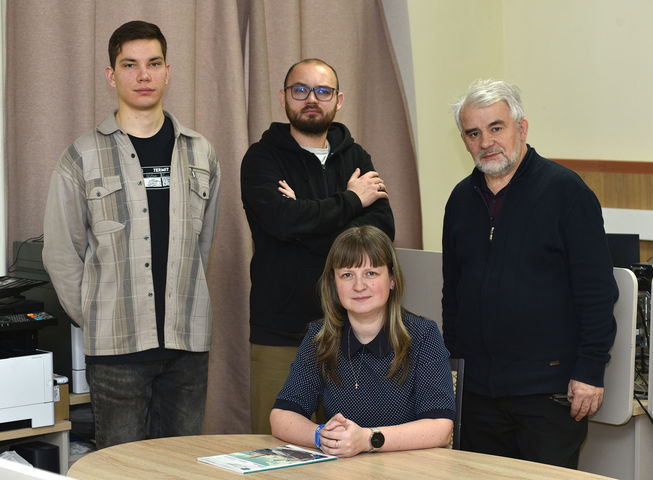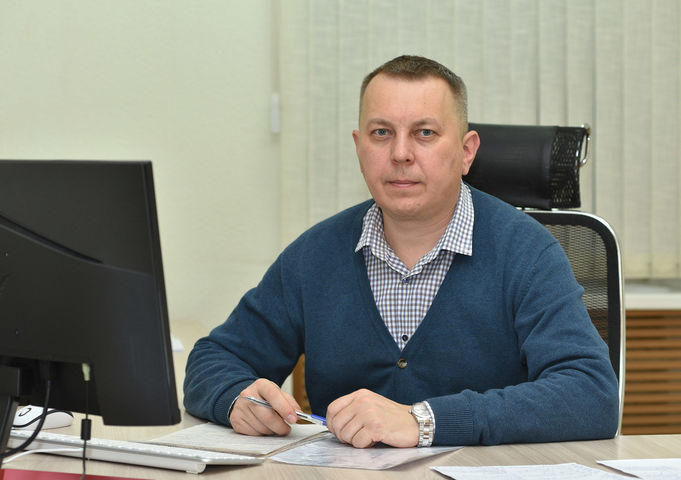Two UdSU projects are supported by Russian Science Foundation grants under the competition "Basic and Exploratory Scientific Research Conducted by Small Scientific Groups".
The first project, led by Vasily A. Zaitsev, Doctor of Physics and Mathematics, is called "Control of the matrix spectrum of bilinear block systems". Here is what Dr Zaitsev tells about the project: "Dynamic objects are described by systems of differential equations. The behavior of objects over a sufficiently long period of time is called decision asymptotics. The spectrum of the system is responsible for the asymptotics of solutions. Depending on the values of the spectrum, the behavior of an object can be stable or unstable. Solution stability is an extremely important property of dynamical systems that arise in physics, mechanics, chemical kinetics, molecular biology, ecology, neural network theory and many other fields. The loss of stability of an object can lead to catastrophic consequences. We deal with the tasks of managing the sustainability of facilities and the tasks of managing a range of systems. The novelty of the project lies in the fact that we control not a simple numerical spectrum, but a matrix spectrum. Matrix block systems describe the behavior of groups of dynamic objects rather than individual objects. The results obtained will be applied in practical tasks of managing the group behavior of dynamic objects."
 The second project, called "Mathematical modeling of diffusion processes during high-temperature soldering in outer space," is headed by Candidate of Physics and Mathematics Sciences, Svetlana A. Gruzd. Dr Gruzd outlines the major ideas of the project as follows: "Spacecraft are regularly subjected to collisions with space debris, which leads to breakdowns, chips and cracks on their surfaces. At the moment, there are no technologies that can qualitatively eliminate such damage in a metallurgical method. Laboratory testing for such tasks is complicated by the impossibility of conducting them in terrestrial laboratories. Computer technologies, in particular the creation of digital twins, allow us to solve some of the problems connected with the need to work out the influence of various external factors on the process. As part of the project, it is planned to work out the temperature regimes of the technology of high-temperature reaction-contact soldering of AMG alloys with Zn-based solder at various levels of gravity. It is planned to obtain the shapes of the solder surfaces after melting, as well as the characteristic times of wetting the solder surface of the product. The dynamics of the liquid solder contact line movement will be studied taking into account processes such as diffusion and adhesion". The results of a series of numerical calculations based on the developed models will further allow to create a high-temperature soldering technology for its implementation in outer space.
The second project, called "Mathematical modeling of diffusion processes during high-temperature soldering in outer space," is headed by Candidate of Physics and Mathematics Sciences, Svetlana A. Gruzd. Dr Gruzd outlines the major ideas of the project as follows: "Spacecraft are regularly subjected to collisions with space debris, which leads to breakdowns, chips and cracks on their surfaces. At the moment, there are no technologies that can qualitatively eliminate such damage in a metallurgical method. Laboratory testing for such tasks is complicated by the impossibility of conducting them in terrestrial laboratories. Computer technologies, in particular the creation of digital twins, allow us to solve some of the problems connected with the need to work out the influence of various external factors on the process. As part of the project, it is planned to work out the temperature regimes of the technology of high-temperature reaction-contact soldering of AMG alloys with Zn-based solder at various levels of gravity. It is planned to obtain the shapes of the solder surfaces after melting, as well as the characteristic times of wetting the solder surface of the product. The dynamics of the liquid solder contact line movement will be studied taking into account processes such as diffusion and adhesion". The results of a series of numerical calculations based on the developed models will further allow to create a high-temperature soldering technology for its implementation in outer space.
Considering a large number of applications for this competition, high requirements set for project leadership, executors and the level of work carried out, we can safely say that the supported researchers are one the best Russian scientists in their fields.

